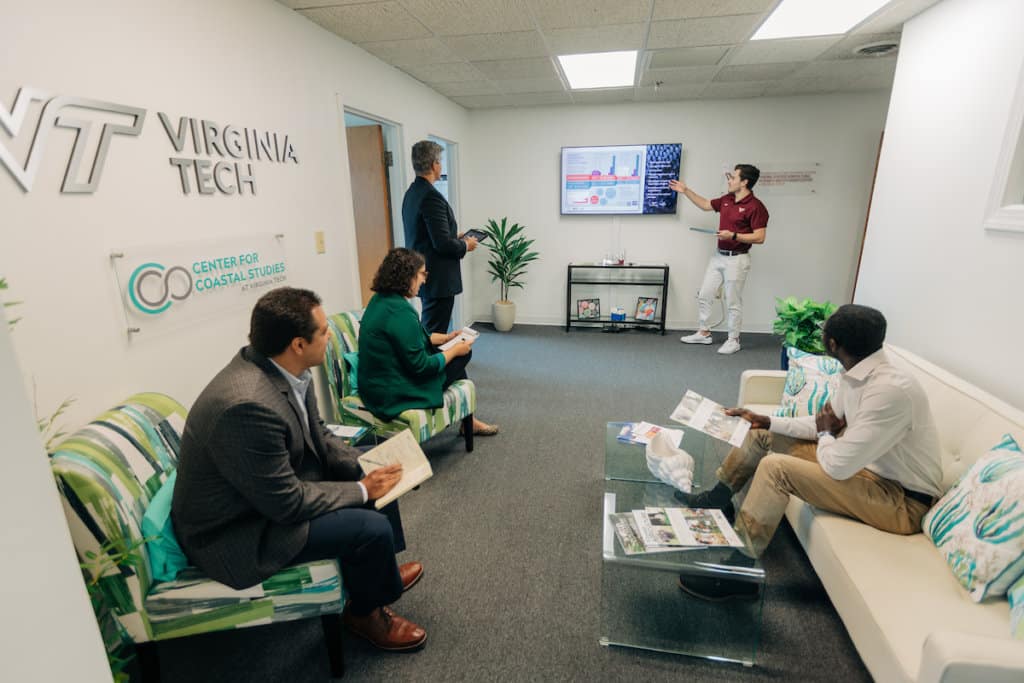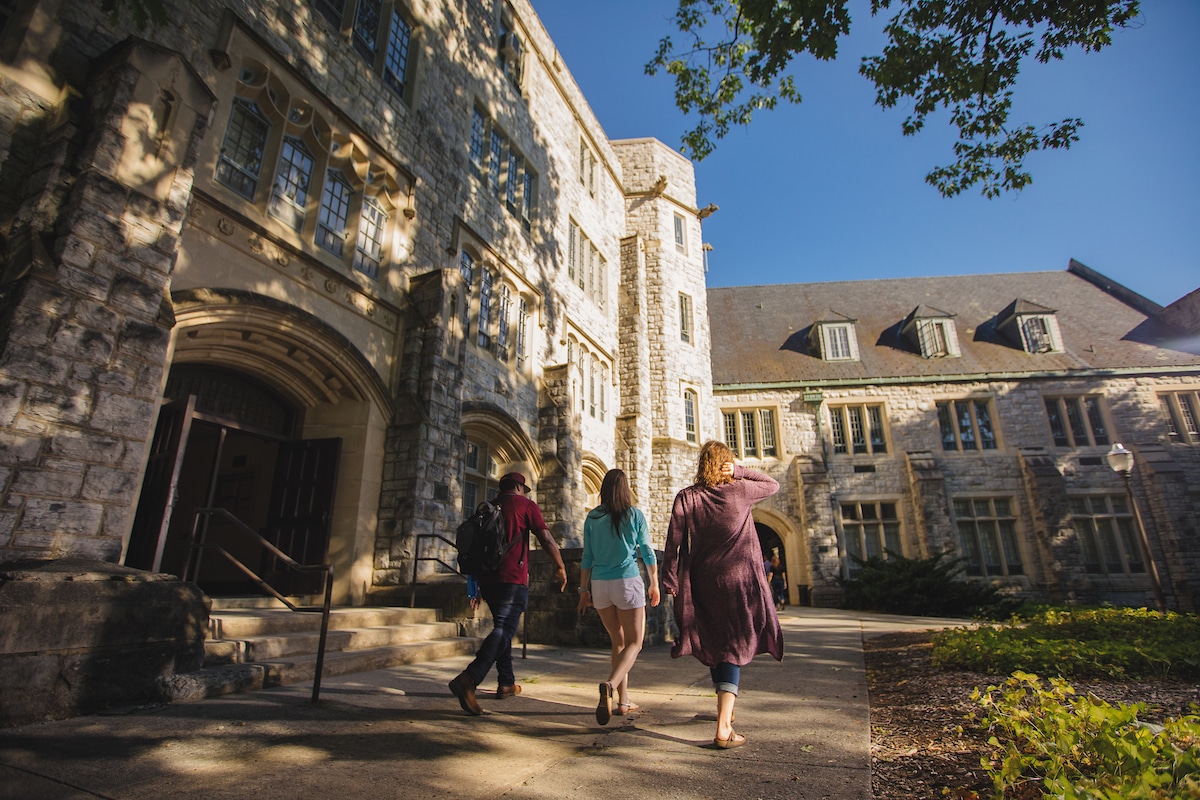Rosemary Life wears many different hats on any given day. The Virginia Tech BS in Dairy Science graduate, works full-time as a Youth Program Educator for Rockingham County, and helps out on the family dairy farm. She’s also a mother pursuing Virginia Tech’s Online Master of Science in Agricultural and Life Sciences (OMALS).
As part of her county’s Extension Office, Life currently educates youth in grades K-12 about STEM and agriculture. “I want to pursue the OMALS program to further my knowledge to a professional level of teaching,” she says. “In addition, this degree can help me advance to a 4-H Agent position.”
Rosemary is able to juggle her work, family, and upskilling thanks to the program’s 100% online format. ” With the OMALS program, I can balance my work and family life on my time. I can spend time with my son in the evenings and finish my coursework at night when he is asleep,” she says.
Assistant Professor Tiffany Drape agrees that online learning is the way forward. “Removing the barrier of geography enables students to engage more easily, and the instructors have worked hard to build an equivalent online educational experience for a project-based master’s program,” she says.

Designed for adult learners, VT’s OMALS has evolved to meet the needs of working professionals. Source: Virginia Tech, College of Agriculture and Life Sciences
After discussing with program leadership, OMALS students choose one of eight concentrations that best matches his or her interests and professional goals. These concentrations include Environmental Science, Leadership Studies, Agribusiness, Applied Nutrition and Physical Activity, Applied Animal Behavior and Welfare, Plant Science and Pest Management, Education, and Food Safety and Biosecurity.
Dr. Drape teaches in the Education concentration. “Students can learn how to conduct action-based research, which is practical and applicable for the job they are in or [the] job/field they hope to be in,” she shares. “We work with folks from formal education to USDA food inspectors and everyone in between who work with people in any kind of educational capacity.”
What sets the OMALS program apart from other online degrees is its people. Faculty committee chairs and members are always available to offer support for coursework or final projects. With a low student-to-faculty ratio, they have more time to guide students, too.
OMALS faculty are passionate about their area of expertise and the OMALS program overall. “The OMALS program offers students access to experts in the various fields of [their] concentration and a web of support that provides personalized attention,” says faculty member Gary Snyder. “The opportunities to interact with the professors and fellow students promote the development of a network of colleagues that will last throughout the program and beyond.”
Dr. Snyder teaches a core course required of all OMALS students. “I teach the Communicating Research and Leadership in Agriculture and Life Sciences course that sets out to provide a strong foundation for students in the OMALS program. The objectives and outcomes are established to serve all students across the various concentrations in the OMALS program,” he says. “The ability to access the research, and communicate it clearly and succinctly to others in and outside of the given field is a critical skill [taught in the course]. The leadership component is also universal in the need to articulate a vision, work collaboratively, and solve problems across disciplines.”

The Education concentration is designed for those who want to advance their teaching, learning, leadership, extension and communications skills. Source: Virginia Tech, College of Agriculture and Life Sciences
Courses such as STEM Integration in Agricultural Education, Community Partnerships and Volunteerism, and Program and Curriculum Design in ALCE train students to serve individuals and communities with diverse needs. It is perfect for those who want to become agricultural leaders, educators, and communicators.
Graduates from this concentration can look forward to making an impact in the agricultural and life sciences field as cooperative extension agents, public school educators, post-secondary instructors, corporate consultants, community program managers, and program evaluators. They leave Virginia Tech with the right skills, attitude, and experience needed to thrive in their future careers.
With the knowledge Carter Humphries gained from her online master’s program, she was able to create impactful programs and is more confident in working with the youth of Henrico County. “As a result of OMALS, I have the confidence and skill set to share my knowledge with the community and develop partnerships which are instrumental to the long-term success of the program,” she says.
Meanwhile, Dr. Drape recalls a student’s final project and report entitled “Agricultural Grading Manual Training Tools: An Evaluation,” which tied directly to the food source. “[The project] had [an] immediate impact for that student in their job role, and involved other employees and stakeholders at their place of employment,” she says. “It addressed a need and accounted for the changes in the industry.”
Ready to learn more about the OMALS program? Click here.
Follow OMALS on Facebook, Instagram and LinkedIn
Follow Virginia Tech on Facebook, Twitter, Instagram, YouTube, LinkedIn and TikTok













